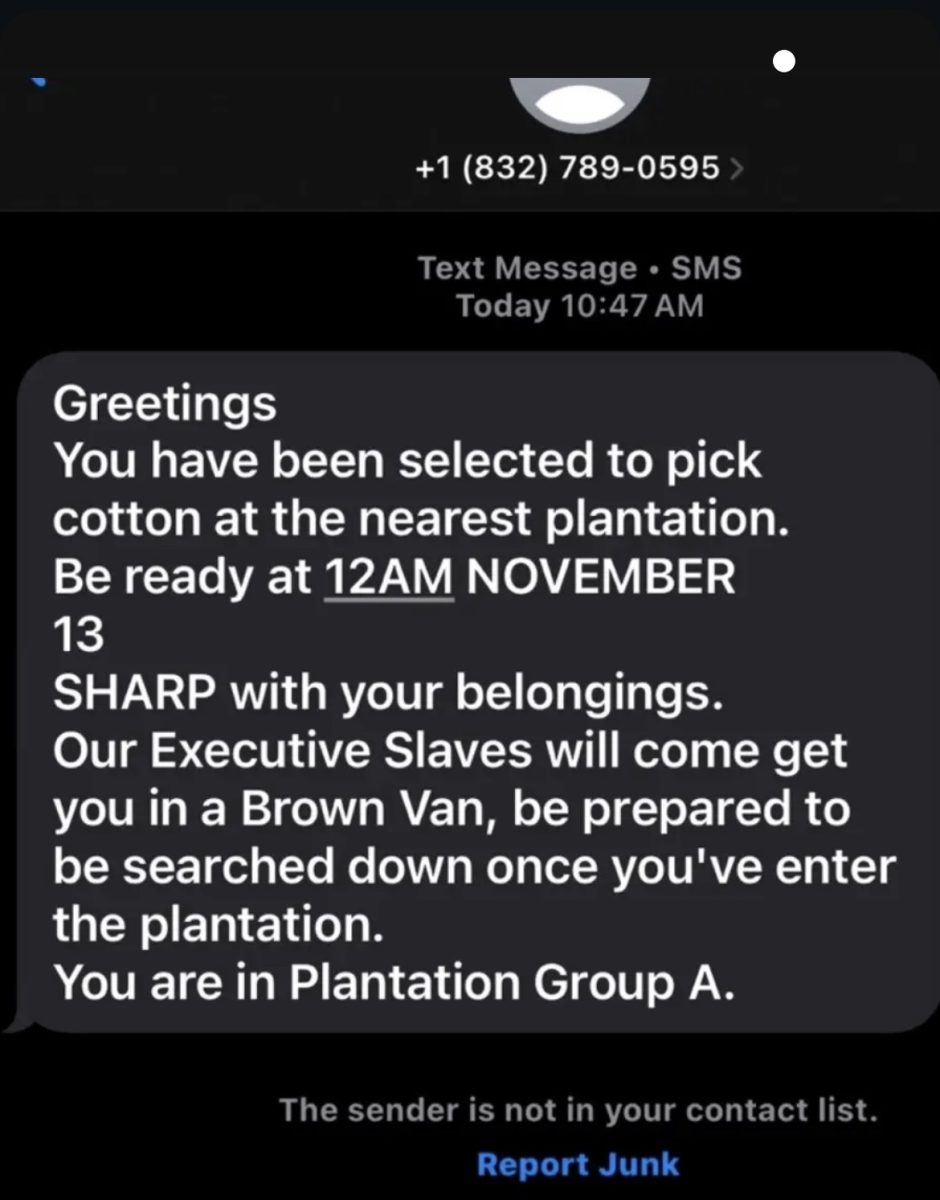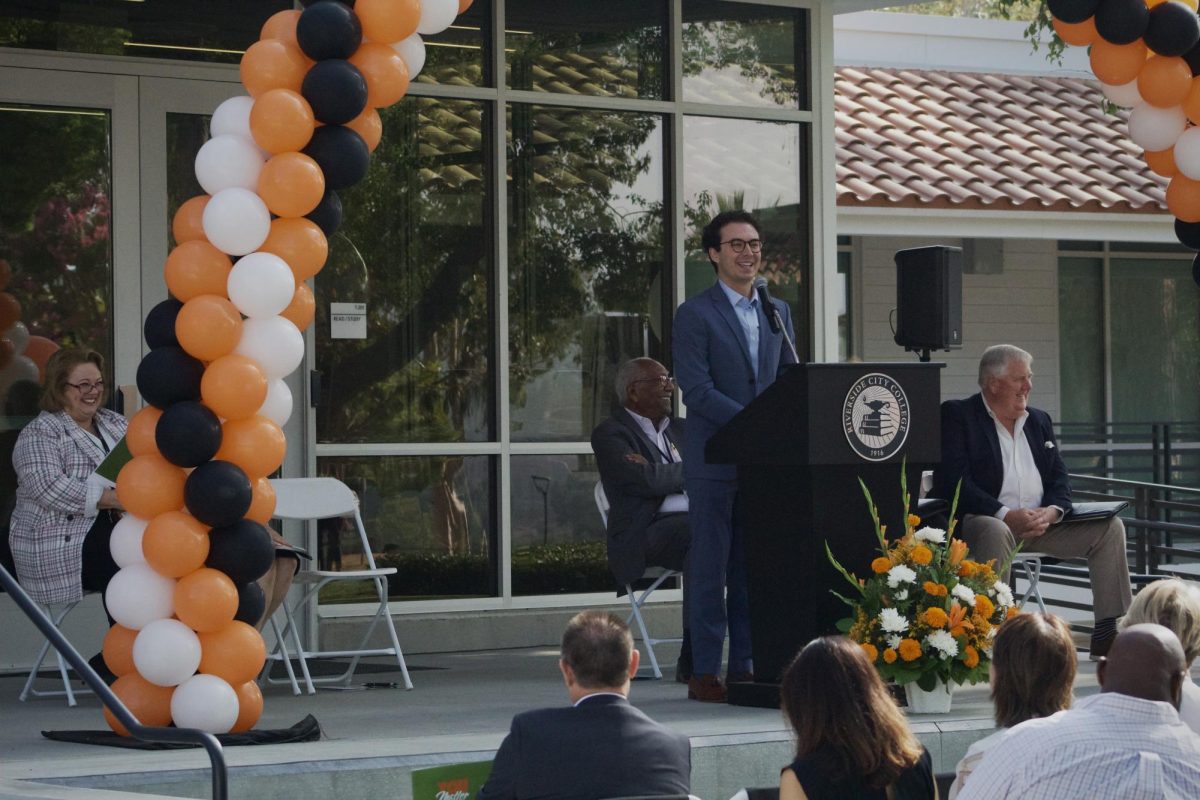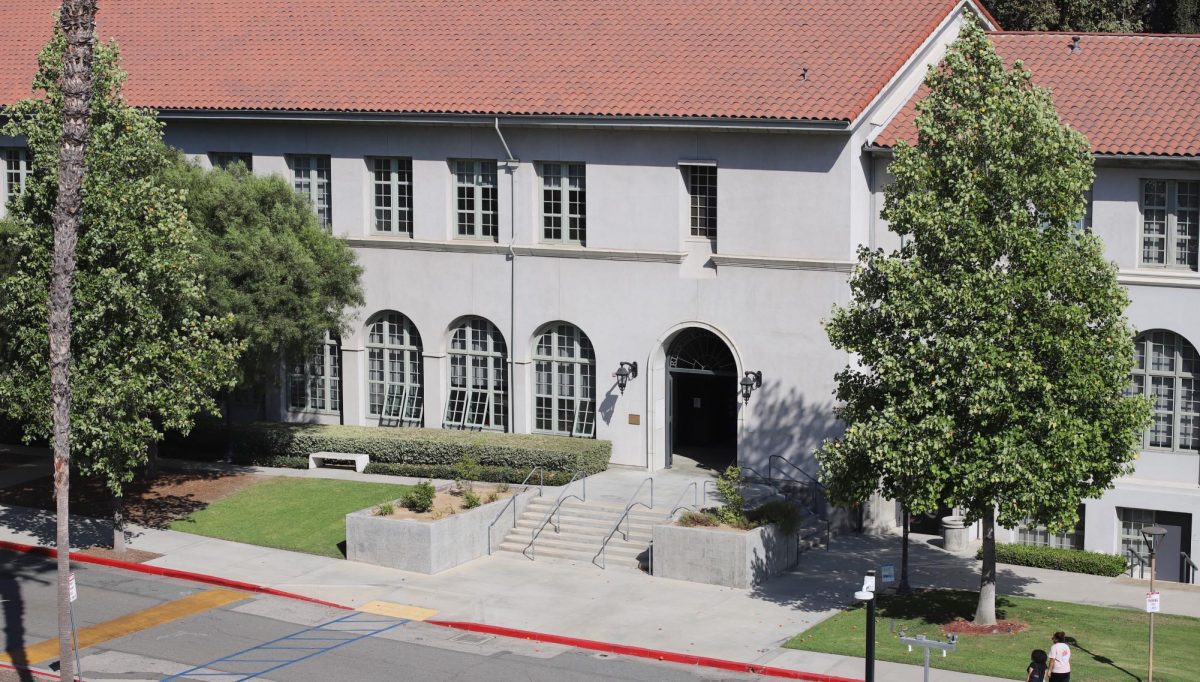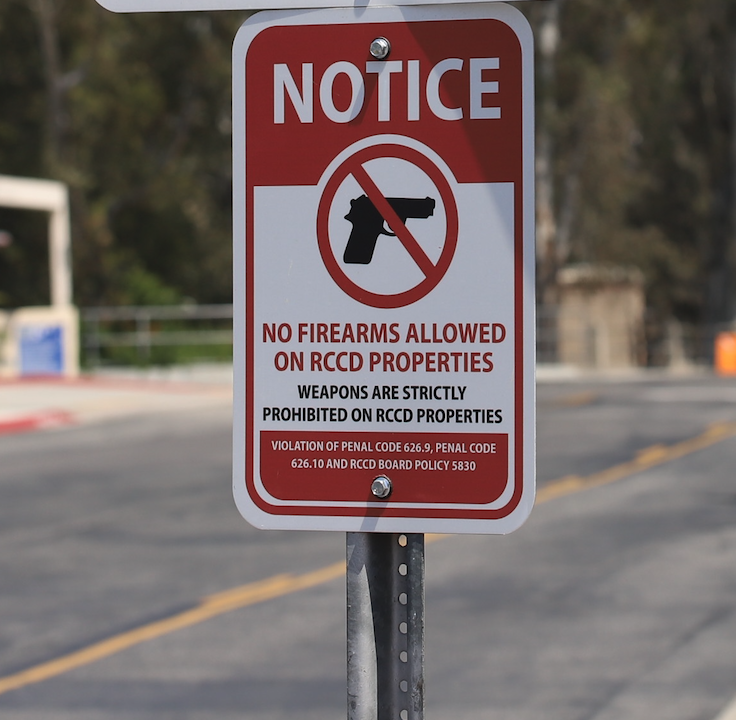Cesar Chavez Day festivities include informative speeches and the push to expand message
Written by Taven Strickert
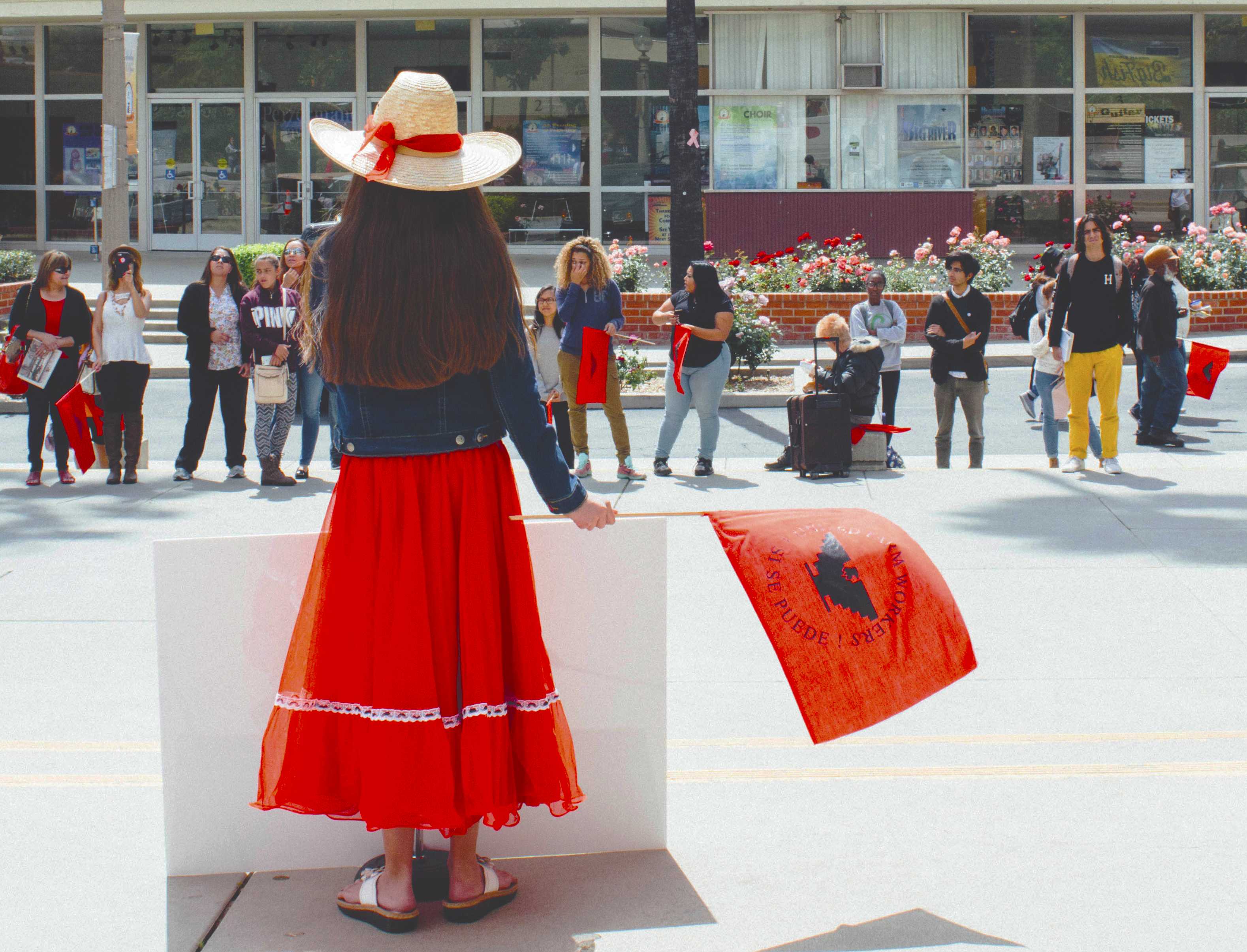
Faculty members Jose Diaz and Tony Ortiz ran the event and gave an impassioned speech on the message and memory of the holiday as well as the goal for it to be an American holiday and not solely a Latino holiday.
“It’s about bringing people together and having a common experience for the future by having a common memory and understanding of the past struggles,” Ortiz said.
Free fruit such as oranges and plums were given away at the event as a reminder of those who picked it.
“It’s important that they are not forgotten, to remember how this food gets to the table and that these people have everything to do with that,” Diaz said.
Students at the event had not heard the stories of the Chavez Chicano Movement. Such as Melissa Pallares and Kaitlin Gallardo.
“I don’t know much about him but I am excited to learn,” Gallardo said.
Students were attracted to the sights and music of the event as many of the participants were in red and wove flags of red bearing the logo “¡Si Se Puede!.”
“We just saw the flags waving and wanted to see what it was all about,” said Pallares.
RCC students had the opportunity to not only to learn about Chavez but to meet the people whose lives were directly impacted by his movement.
Miguel Arias, RCC grounds keeper and ex-farmworker came to the U.S. in 1976 and directly benefited from movements like that of Chavez, which gave better conditions and pay for the workers.
“We had no bathrooms, no breaks and the pay was poor,” Arias said. “It has gotten much better and I love working for here, but I still have farmworker’s blood in my veins.”
Julisa Veron, the granddaughter of Miguel Arias, sang a song called “Deportees” at the event that tells the story about a plane that crashed on its way back to Mexico.
The casualty list bore the names of the pilots and guards but for the Mexican farmworkers aboard the only name to be seen was that of “deportee.”
Many Latin Americans are deported to their homelands every year once their labor contracts expire, which was the inspiration for the song.
“It taught me to be grateful for the food that I eat because they pick it in the hot fields,” Veron said in admiration of the struggles of her grandfather and the many others who had to, and still continue to, endure similar hardships today.



